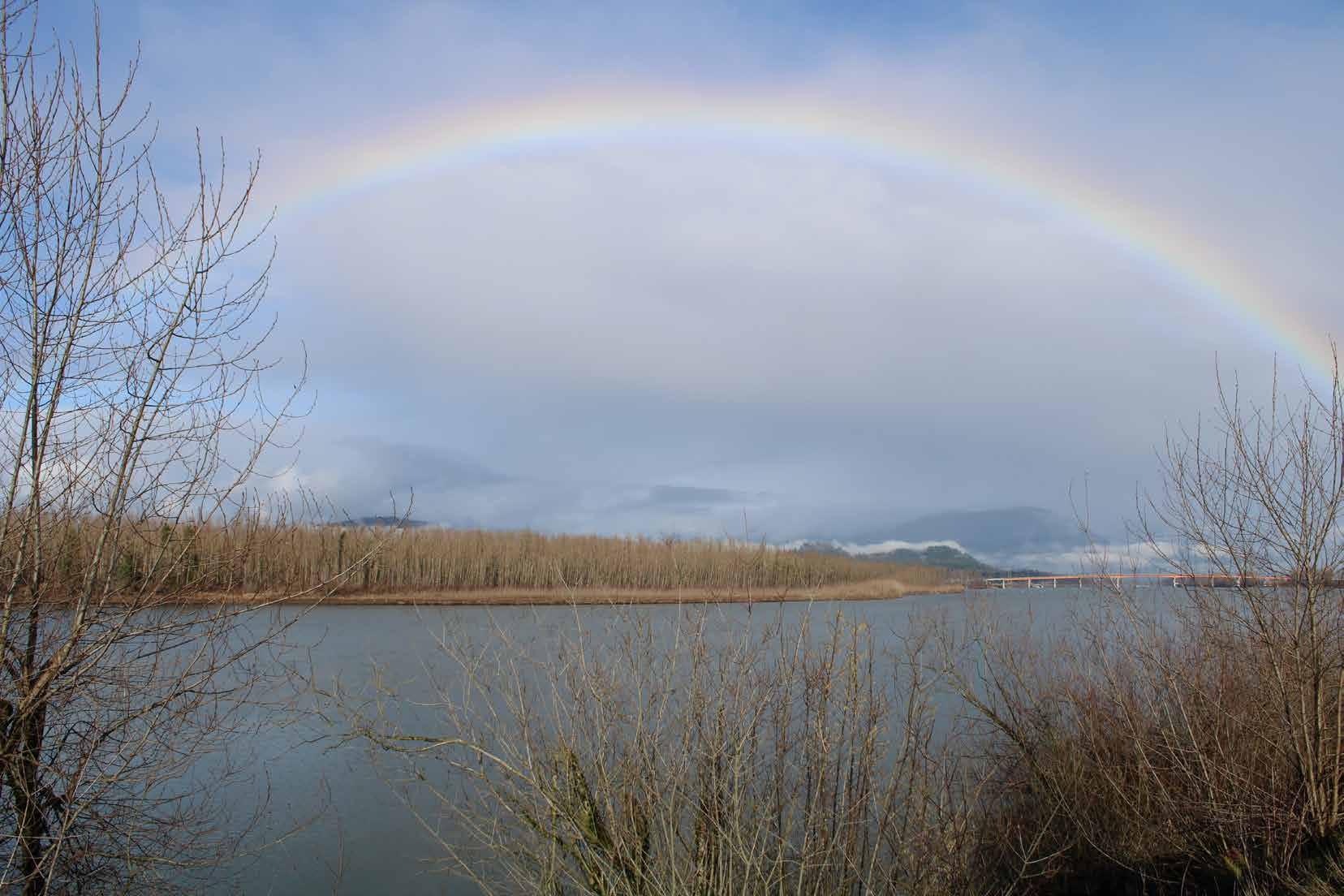
3 minute read
Emergency Planning Secretariat
Gillian Fuss, Project Coordinator and Maggie Mazurkewich, Outreach Assistant
We are very thankful to communities for continuing to engage with us on the review and response to the Lower Mainland Flood Management Strategy (LMFMS). Since January, we’ve hosted two Tier 1 Workshops and two Technical Working Groups meetings to develop a response framework to Draft 1 of the LMFMS. We have sent a letter to Fraser Basin Council and the Province requesting time for further engagement and will be connecting with communities individually and regionally to assist in either a collaborative or individual community response. In any case, we hope to assist in developing a coordinated voice of 31 Mainland Coast Salish that advocates for community concerns, values and priorities in regional work that incorporates DRIPA, FPIC and OCAP.
Advertisement
Meanwhile, the Province is undertaking a Provincial-wide Flood Strategy and will soon be releasing a Discussion Paper. Their work is being developed through an Indigenous Framework in collaboration with Alderhill Consultants and through consultation with EPS Chair Tyrone McNeil and First Nation communities across BC. We’re pleased to see this!
The Province has indicated they will be delaying the modernization of Emergency Program Legislation until spring 2022, under the new leadership of Deputy Minister Tara Richards, in order to incorporate more learnings of COVID-19. EPS has been working with 6+ communities on flood mapping work in partnership with Sto:lo Research and Resource Management Centre GIS consultants. We hope to annotate the maps with flood risks other than Fraser freshet and Coastal storm surge and sea level rise, to indicate gaps in regional risk assessment for further work and funding. Connect with us if your community is interested!
EPS will be hosting a freshet workshop in April with FLNRORD flood safety engineering branch to develop Community Binders of flood risk so that appropriate response protocols and funding mechanisms can be put into place more efficiently during a flood event. In addition, there will be information on future training for staff or community members for the role of flood observers and assessors. Please attend or connect with us to learn more.
As spring freshet approaches alongside with COVID-19, we all will be monitoring snowpack (currently at 115% of average) and weather conditions for a La Nina year, which call for a cool, extended spring. Communities are encouraged to be on flood watch!
We have been organizing Collaboration Meetings with FNESS, the Federal and Provincial government to understand how best to direct funding and services to Mainland Coast Salish communities, especially
during another potential freshet and pandemic year.
We’re further connecting with Indigenous Services Canada to progress funding for 2-3 full-time Emergency Program Coordinator positions to support communities within the region and to assist in the development of 911 mapping programs. We hope to assist ISC to engage with communities to identify how this program can roll out most effectively.
EPS hosted a Leadership Forum, which indicated the need for increased leadership direction in the development of the EPS mission and vision, including getting a baseline understanding of community emergency management programs in order to collectively plan and develop an emergency management regional action plan. EPS hopes to begin this process through the MCSFRA project and we hope to establish a Leadership Table of 12-15 communities in order to guide our strategic direction.
Lastly, we are grateful to you for the many letters of community support that we’ve received. Please contact us anytime with questions, feedback or requests, we would love to hear from you!








